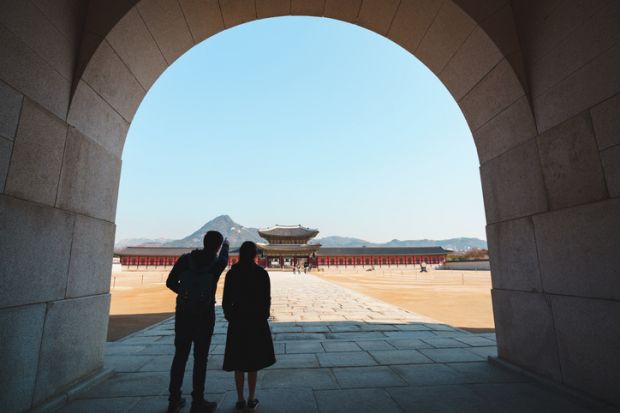South Korea’s Education Ministry has told national universities to increase the proportion of professors who are female to 25 per cent by 2030, but some scholars have questioned whether quotas are the best way to move towards equality.
According to the ministry’s website, women make up almost 19 per cent of university professors. That proportion rises to 24 per cent for education universities, but slips to 17 per cent for industrial universities that focus on science and engineering fields. These figures put South Korea more or less on par with other developed East Asian states such as Japan and China.
David Tizzard, an assistant professor of Korean studies at Seoul Women’s University, told Times Higher Education that although the ministry’s intention was good, setting a quota might not be fair or effective.
“I approve of what they are trying to achieve and completely support the idea that there be more female professors. However, I don’t think that setting such limits is the way to go,” he said. “Setting such quotas, akin to affirmative action, is a noble approach, but I feel there are too many ways it can go wrong or be abused.”
Dr Tizzard said there was already an “organic” movement taking place, with growing numbers of women in university classrooms, which he had observed while teaching international studies at Hanyang University. However, there remained an “entrenchment” of men in their forties to sixties “occupying a lot of positions of power”, he said.
Even when an institution commits to change, hiring more female professors might be easier said than done. Seoul National University (SNU), the country’s top-ranked institution, said in 2018 that it would hire a female professor into its male-dominated economics department, but the appointment seemingly did not come through. In 2019, it announced that it had appointed Yena Park as the first Korean woman to be an economics professor. Professor Park confirmed to THE that she would begin work in September.
Dr Tizzard said broad social change was more important than quotas to boosting gender equality. “I would have advocated trying to change the national consciousness rather than focusing on limits and numbers,” he said.
Terri Kim, professor of comparative higher education at the University of East London, told THE that “organisational culture, which is still patriarchal in Korea, is one of the longstanding challenges that female academics face”.
In some segments of Korean society, high-achieving women are still meet with disdain. Last year, a conservative politician publicly criticised an SNU professor for “failing to fulfil her duty” because she did not have children.
Chang Kim, executive director of the Korean Association of Human Resource Development, told THE that “this issue is not a problem that can be solved by forcing gender proportions, but must be solved by securing transparency in the hiring process through audits or other institutional measures”.
The problem is not unique to Asia. Women make up less than a quarter of the professoriate in Germany, which recently scrapped gender parity quotas for committees, as European nations become increasingly wary of using strict allotments for women.
Register to continue
Why register?
- Registration is free and only takes a moment
- Once registered, you can read 3 articles a month
- Sign up for our newsletter
Subscribe
Or subscribe for unlimited access to:
- Unlimited access to news, views, insights & reviews
- Digital editions
- Digital access to THE’s university and college rankings analysis
Already registered or a current subscriber? Login










